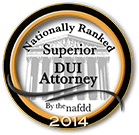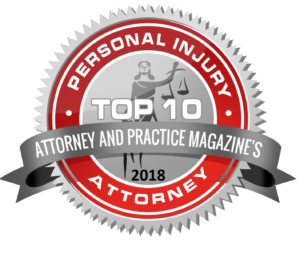If you have experienced whiplash from an accident in Virginia, you may feel overwhelmed by the legal and medical issues ahead. At NovaLegalGroup, P.C., we understand how confusing and stressful this time can be for you. Seeking justice and fair compensation for your injuries is often a difficult path, but you do not have to navigate it alone. Our compassionate team is here to guide you every step of the way, ensuring your concerns are addressed and your rights are protected. In today’s digital age, social media has become a part of everyday life, but it can have significant implications for your whiplash claim.

Understanding the Role of Social Media in Legal Cases
Social media platforms have transformed how people communicate, share information, and stay connected. While these platforms offer convenience and a sense of community, they also create a public record of your actions, words, and even your photos. Insurance companies and defense attorneys frequently monitor the social media activity of claimants to find evidence that can be used to challenge their cases. If you are seeking compensation for whiplash, your posts, comments, or even tagged images can potentially undermine your claim. It is crucial to recognize that your online presence is not as private as you might think, even with privacy settings in place.
How Social Media Posts Can Be Misinterpreted
After suffering whiplash, your daily life may be affected in ways that are hard to explain. You may experience pain, limited mobility, or emotional distress, all of which can affect your quality of life. However, photos or posts on social media can be taken out of context, especially if they seem to contradict the severity of your injury. For example, if you share a photo of yourself smiling at a family gathering, an insurance adjuster might argue that you are not truly in pain. Even posts unrelated to your injury can be twisted to fit a narrative that reduces the validity of your claim.
Whether you have been charged with a Criminal Offense, Serious Criminal Traffic Offense, or have been injured in an Accident that was not your fault, our First-Class Attorneys are not going to let you become a victim! With our experience, we will fight back, with you and for you, to get the results you deserve.Helping you fight back.
Privacy Settings Are Not a Foolproof Solution
It is a common misconception that adjusting the privacy settings on your social media accounts protects you from scrutiny. While these settings can limit who sees your posts, they do not guarantee that your content remains private. Friends or followers could share or screenshot your posts, making them accessible to others. Additionally, legal discovery processes in personal injury cases may allow attorneys to request access to private posts if they believe the content is relevant to the case. This means that even with the strictest privacy settings, your social media activity can still be reviewed and used against you.
What You Should Avoid Posting During Your Whiplash Case
When pursuing a claim for whiplash, it is wise to be cautious about what you share online. Avoid posting about the accident, your injuries, or your ongoing case. Even innocent statements like feeling “better today” can be misinterpreted as evidence that you have fully recovered. Similarly, photos of physical activities or outings, even if unrelated to your injuries, can be used to argue that you are exaggerating your pain or limitations. While it may be tempting to update friends and family on your recovery journey, it is safer to communicate privately or in person rather than through public posts.
Social Media Monitoring by Insurance Companies
Insurance companies are focused on minimizing the amount they pay in claims, and they often employ strategies to achieve this goal. One of these strategies includes monitoring the social media activity of claimants. Investigators may look for inconsistencies between your online behavior and the details of your claim. For instance, if you allege severe neck pain but post a picture of yourself participating in a physical activity, the insurer may use this as evidence to dispute your injuries. Understanding this tactic underscores the importance of being mindful about what you share online.
How an Attorney Can Help Protect Your Claim
Navigating the complexities of a whiplash claim while managing your recovery can be overwhelming. An attorney with experience handling personal injury cases can offer valuable guidance on how to safeguard your claim. They can advise you on best practices for social media use during your case, ensuring that your actions do not inadvertently harm your chances of receiving fair compensation. Additionally, an attorney can challenge the misuse of social media evidence by providing context or refuting misleading interpretations.
Staying Vigilant to Protect Your Rights
Being cautious about your social media activity is just one way to protect your whiplash claim. It is also essential to document your injuries, follow medical advice, and communicate openly with your attorney. Consistency and credibility are key factors in building a strong case, and your online behavior should align with the information you provide about your injuries and limitations. By staying vigilant, you can help prevent unnecessary challenges to your claim and focus on your recovery.
Choosing a Personal Injury Attorney Personal Injury Case TimelineRelated Videos
The Long-Term Impact of Careless Social Media Use
What may seem like a simple photo, status update, or comment could have long-term consequences for your whiplash claim. Unlike conversations that fade from memory, social media content leaves a lasting digital footprint that can be accessed and scrutinized. Even posts made before the accident can sometimes be brought into the case if they relate to your physical abilities or lifestyle. Defense attorneys may use old photos of you participating in sports or physical activities to argue that your injuries are pre-existing. This shows how a single post, even from the past, can be misrepresented and used to reduce the value of your claim.
The Role of Friends and Family in Your Social Media Use
Even if you refrain from posting about your whiplash injury, your friends or family members may tag you in their posts, share photos of you, or comment about your condition. This content can still be discovered by insurance companies or opposing attorneys, especially if your privacy settings are not strict. A seemingly innocent photo of you at a family gathering or community event could be used to suggest that you are exaggerating your injuries. It is wise to ask close friends and family to be mindful of what they share about you online and to avoid tagging you in posts during the course of your case.
How Social Media Can Impact Settlement Negotiations
When you file a claim for whiplash, the settlement process is often a negotiation between you, your attorney, and the insurance company. Insurance adjusters look for any opportunity to reduce the payout amount, and social media posts can give them leverage. If they find content that contradicts your claims of pain or physical limitations, they may argue that you do not need as much compensation as you are seeking. This could result in a lower settlement offer, forcing you to either accept less than you deserve or face a longer fight in court. By being mindful of your social media presence, you can avoid providing the insurance company with ammunition to use against you.
We Are Here to Help You Through This Difficult Time
At NovaLegalGroup, P.C., we understand the challenges you face after suffering whiplash. Our team is dedicated to providing the support and guidance you need to secure a favorable outcome for your case. Social media may seem like a small part of your life, but it can have a significant impact on your claim. By working with our firm, you can take steps to protect your rights and focus on your recovery with confidence. Reach out to us today for a consultation, and let us help you achieve the justice and compensation you deserve.










